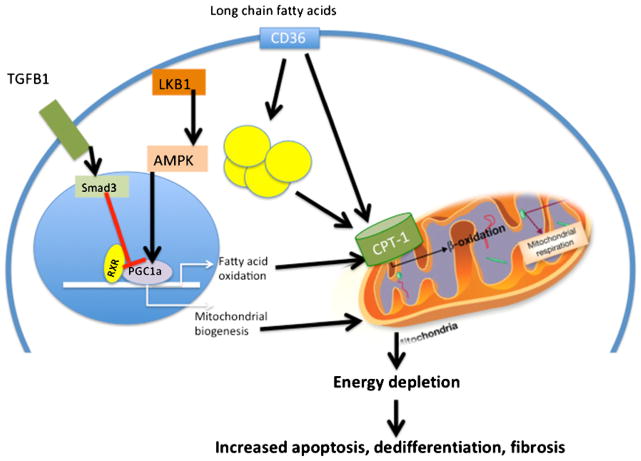Fig. 2.
Decreased fatty acid oxidation contributes to CKD progression. Schematic model describing lipid abnormalities in renal tubule cells during fibrosis. Renal tubule cells take up long-chain fatty acids taken up via CD36. Fatty acids are then either stored in lipid droplets or oxidized in the mitochondria. The rate-limiting step in fatty acid oxidation is the uptake of fatty acids by mitochondria; this is regulated by CPT1. The RXR/PGC1a complex plays a critical role in transcriptional regulation of fatty acid oxidation and mitochondrial biogenesis. Smad3 and TGFB1 and the LKB1 and AMPK pathway play an important role in regulating the PGC1a/RXR complex. Defective fatty acid oxidation in CKD results in energy depletion and increased apoptosis and dedifferentiation and kidney fibrosis development. CD36 CD36 molecule (thrombospondin receptor); TGFB1 transforming growth factor, beta 1; RXR retinoid X receptor, alpha; PGC1A peroxisome proliferator-activated receptor gamma, coactivator 1 alpha; LKB1 liver kinase B1; AMPK AMPK-activated protein kinase; CPT1 carnitine palmitoyltransferase

